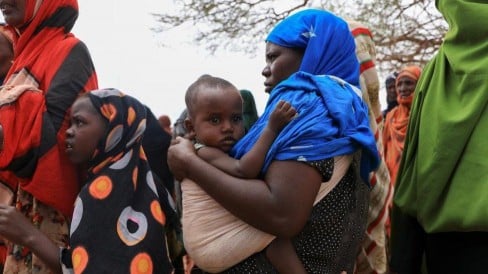
The World Bank, the globe's top anti-poverty institution, has told the BBC that recent cuts to the UK foreign aid budget "caused real pain".
The Bank added it wanted the UK "back at higher levels" of funding.
The UK government was until recently the biggest single donor to the Bank's fund for the poorest countries in the world.
Since 2020 ministers have cut back on aid, temporarily, until Britain's public finances are back in shape.
The UK has halved its funding to the World Bank's International Development Association fund to £500m a year.
The World Bank faces further challenges as it struggles to raise finances for a new crisis response fund aimed at helping countries respond to higher poverty levels.
"Every dollar counts, every dollar that we get saved lives. The way I look at this fund is how you actually save lives… so this caused real pain," said Axel van Trotsenberg, senior managing director at the World Bank.
Mr van Trotsenberg, the second-in-command at the Bank, said that donor contributions had been largely "flat".
He added: "We want to build on it. And we want the UK back at higher levels."
Three years of crisis have abruptly ended decades of progress in reducing global poverty.
Absolute poverty, where people live on less than $2 (£1.63) a day, affects nearly 100 million more people now than before the pandemic.
Against this backdrop the World Bank says it needs more funds to deal with crisis-afflicted poorer nations as soon as this December.
But as more funds get diverted into refugee spending other aid flows are impacted. Money going to sub-Saharan Africa, for example, are down more than 7% in real terms.
In response to Mr van Trotsenberg's comments, a government spokesperson said: "The UK is one of the largest aid donors in the world - we have spent nearly £12.8bn on aid in 2022 - which is more than many other G7 countries and is helping to reduce poverty, alleviate the devastating impacts of climate change and protect the world's most vulnerable people.
"Our Overseas Development Assistance is supporting people across the world, and last year responded to drought in East Africa, food shortages in Afghanistan and flooding in Pakistan."


